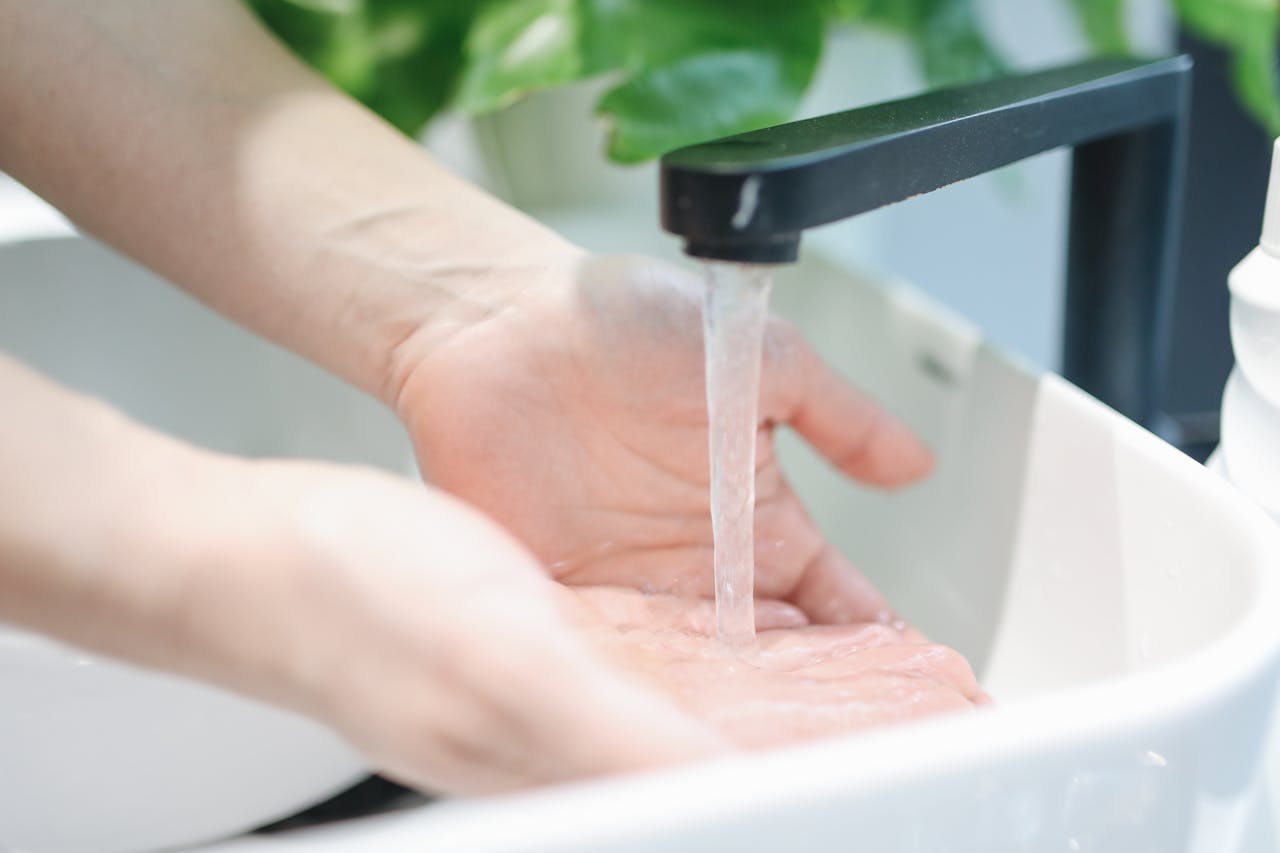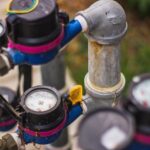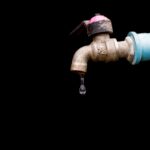Sustainable Water Solutions for Small Businesses

Water conservation is increasingly essential for small businesses, which often operate with limited resources and tight budgets. Sustainable water management not only helps reduce costs but also plays a critical role in minimizing environmental impact and contributing to community well-being.
For small businesses, adopting water-efficient practices can lead to significant savings, help build a positive brand image, and align with growing consumer expectations for sustainability. Despite facing challenges like limited capital for upgrades and a lack of specialized expertise, small businesses can adopt practical and impactful water-saving strategies that benefit both their operations and the environment.
Assessing Water Use and Identifying Areas for Improvement
Before implementing water-saving measures, small businesses should first understand how they use water and identify areas where it can be conserved. Conducting a water audit is a practical first step; it helps businesses track where water is being used, how much is being consumed, and where waste might be occurring.
● Conducting a Water Audit: A water audit can be done internally or with the help of a professional service. It involves reviewing utility bills, checking for leaks, and assessing water use in various areas like restrooms, kitchens, and outdoor spaces. This analysis allows businesses to spot high-consumption areas and track seasonal or operational water use patterns.
● Common Areas of Water Waste: In small businesses, significant water usage often occurs in restrooms, kitchens, and landscaping. For instance, restaurants may have high water use in dishwashing, while offices may see usage spike due to restroom and irrigation needs. Identifying such areas provides a targeted approach to conserving water.
● Setting Water Conservation Goals: Once businesses understand their water consumption, setting clear and achievable goals becomes easier. Goals may include reducing water use by a specific percentage, upgrading certain fixtures, or implementing employee training programs on water-saving techniques. These goals create a framework for sustainable practices and help track progress over time.
Implementing Water-Saving Technologies
Water-saving technologies are valuable for small businesses looking to reduce their water footprint without sacrificing functionality. These upgrades often result in lower water bills, reduced maintenance costs, and a more sustainable operation overall.
● Low-Flow Faucets and Fixtures: Installing low-flow faucets, showerheads, and aerators can cut water usage significantly without compromising performance. These fixtures control water flow rates, ensuring that only the necessary amount of water is used, and are relatively easy to install and maintain.
● Water-Efficient Appliances: For businesses with kitchens or laundry services, water-efficient dishwashers, washing machines, and other appliances can reduce water consumption considerably. ENERGY STAR-rated appliances, for example, use less water than standard models, which is beneficial for businesses looking to save both water and energy.
● Dual-Flush Toilets: Dual-flush toilets allow users to choose between a low or high flush depending on the waste, making them highly efficient for conserving water. This option is particularly useful in businesses with high foot traffic, where water usage in restrooms can be substantial.
● Smart Irrigation Systems: For businesses with outdoor landscaping, smart irrigation systems adjust water usage based on weather conditions and soil moisture levels, minimizing water waste. These systems prevent overwatering and reduce unnecessary irrigation, which can lead to both water and cost savings.
Adopting Efficient Operational Practices
Beyond technological upgrades, small businesses can conserve water by refining their day-to-day operational practices. Simple adjustments, regular maintenance, and employee training can make a considerable impact on overall water use.
● Routine Maintenance to Prevent Leaks: Leaks are a common and costly source of water waste. Regularly inspecting faucets, pipes, toilets, and irrigation systems for leaks and fixing them promptly can save a significant amount of water. Preventative maintenance routines can also extend the life of plumbing systems, reducing long-term repair costs.
● Employee Training on Water Conservation: Employees play a critical role in achieving water-saving goals. Training sessions that highlight water conservation practices such as using minimal water when washing hands, reporting leaks, and optimizing dishwasher loads can help employees adopt habits that contribute to water efficiency. Creating a workplace culture that values sustainability reinforces these practices.
● Best Practices for Specific Business Types: Different types of businesses have unique water needs, and optimizing water use often requires tailored solutions. For example, restaurants can save water by pre-soaking dishes instead of rinsing them under running water, while laundromats can use high-efficiency washers and load management techniques to minimize water use. Adapting practices based on the specific needs of the business can significantly enhance water efficiency.
Recycling and Reusing Water
Recycling and reusing water can be highly effective for small businesses, particularly those with repetitive water needs or outdoor spaces. Implementing water reuse practices can help reduce the demand on municipal water supplies and lower costs over time.
● Greywater Systems: Greywater, that is, gently used water from sinks, showers, or washing machines, can be recycled for non-potable uses such as landscape irrigation or flushing toilets. Installing a greywater system allows businesses to repurpose water, which is especially helpful in areas with water restrictions or high utility costs.
● Rainwater Harvesting: Capturing and storing rainwater is another efficient way for small businesses to create an additional water source. Rainwater can be collected from rooftops and stored in tanks or barrels, then used for landscaping or cleaning. This not only conserves municipal water but also reduces runoff, which benefits the local environment.
● Protocols for Safe Water Reuse: For water reuse to be effective, businesses need clear guidelines on handling, storage, and usage to ensure safety and efficiency. Properly managing greywater or rainwater systems includes regular monitoring for contamination, using appropriate storage containers, and educating staff on safe reuse practices.
Sustainable Landscaping for Business Properties
For businesses with outdoor spaces, sustainable landscaping is an important strategy to reduce water use while maintaining an attractive property. Sustainable landscaping practices not only help conserve water but also enhance property aesthetics and support local biodiversity.
● Xeriscaping and Native Plants: Xeriscaping, a landscaping method that reduces or eliminates the need for irrigation, is particularly suitable for dry regions. Using native plants adapted to the local climate helps cut down on water requirements, as these plants typically need minimal watering and maintenance. Native plants also support local wildlife, adding ecological value to the property.
● Efficient Irrigation Techniques: Traditional irrigation systems can be wasteful, especially if they overwater or cause runoff. Drip irrigation, which delivers water directly to the plant roots, minimizes water waste and is ideal for small, landscaped areas. Installing a timer or smart irrigation controller can further optimize water use by adjusting watering schedules based on weather and soil moisture.
● Soil Management Practices: Improving soil health through composting or mulching can enhance its water retention, reducing the need for frequent watering. Mulch, for instance, helps retain soil moisture by reducing evaporation, while compost improves soil structure, enabling it to hold water more effectively. These practices make outdoor spaces more water-efficient and resilient.
Partnering with Local Water Conservation Programs
Collaborating with local water conservation programs can provide small businesses with resources, financial incentives, and support to achieve their water-saving goals. These partnerships not only help businesses conserve water but also foster a sense of community involvement.
● Rebates and Incentives: Many municipalities and utilities offer rebates for water-saving equipment, such as low-flow fixtures, efficient irrigation systems, and greywater systems. Small businesses can take advantage of these financial incentives to offset the initial costs of water conservation investments, making upgrades more affordable.
● Community Water-Saving Initiatives: Some communities organize water conservation initiatives, such as neighborhood workshops, public awareness campaigns, or water-saving challenges. Participating in these programs allows businesses to benefit from collective knowledge and resources while promoting their commitment to sustainability.
● Local Case Studies and Best Practices: Many local water authorities publish case studies showcasing successful water-saving practices from businesses in the area. By reviewing these examples, small businesses can gain insights into practical and regionally relevant solutions for reducing water usage.
Educating and Engaging Customers
Sustainable water management can become a unique selling point for small businesses, especially as customers increasingly seek environmentally responsible companies. By communicating their water conservation efforts, businesses can build stronger connections with their customers and inspire them to support sustainability.
● Highlighting Water-Saving Efforts: Sharing water-saving initiatives, such as installing water-efficient fixtures or recycling rainwater, helps demonstrate a business’s commitment to sustainability. These efforts can be communicated through signage, social media, or company newsletters, showing customers the steps being taken to reduce environmental impact.
● Incorporating Sustainability into Branding: Small businesses can weave sustainability into their brand identity by promoting their eco-friendly practices, including water conservation. Emphasizing sustainability as a core value can attract environmentally conscious customers and help distinguish the business in a competitive market.
● Encouraging Customer Participation: Many customers appreciate the opportunity to contribute to a business’s sustainability efforts. For instance, cafes and restaurants could encourage customers to use refillable water bottles, or retail stores could offer tips on reducing household water use. Engaging customers in these ways can make them feel more connected to the business and its environmental goals.
Monitoring and Adjusting Water Conservation Practices
Sustainable water management isn’t a one-time effort; it requires ongoing monitoring and adjustments. Tracking water use over time allows small businesses to identify trends, set new goals, and make data-driven decisions for improvement.
● Using Smart Meters and Monitoring Systems: Smart water meters provide real-time data on water use, helping businesses track consumption patterns and spot any irregularities, such as unexpected surges in usage due to leaks. By actively monitoring water use, businesses can respond quickly to issues and improve their conservation efforts.
● Adjusting Goals and Practices: As businesses implement water-saving measures and monitor their results, they may find opportunities to set new targets or refine existing practices. For instance, if water use drops significantly after installing low-flow fixtures, the next step might be exploring water reuse or additional upgrades to further reduce consumption.
● Celebrating Milestones and Sharing Successes: Recognizing achievements, such as reaching a water conservation goal, can motivate staff and demonstrate commitment to sustainability. Sharing these successes with customers and the community through newsletters, social media, or signage also reinforces the business’s dedication to responsible water use.
Real life Examples
Learning from others’ experiences can provide valuable insights for small businesses embarking on their sustainability journey. Case studies from various industries highlight real-world applications of water-saving practices and the tangible benefits of conservation efforts.
● Examples of Small Businesses Leading in Water Conservation: Case studies of businesses across different sectors like cafes, retail stores, or dry cleaners, show how water conservation can be tailored to diverse settings. For instance, a small café might showcase water savings from installing low-flow faucets and training staff on efficient cleaning practices, while a retail store could highlight its rainwater harvesting system for landscaping.
● Highlighting Different Industries and Practices: Businesses can draw inspiration from industry-specific practices. For example, a car wash may focus on water recycling systems, while an office building could emphasize low-flow restroom fixtures and landscaping choices. Seeing these examples makes it easier for other businesses to envision similar strategies in their own operations.
● Lessons Learned and Tips for Success: Each success story often contains key lessons, such as the importance of regular maintenance, the benefits of employee engagement, or the value of community partnerships. These insights provide practical guidance for other small businesses looking to start or enhance their water conservation efforts.
Conclusion
Water conservation is not only an environmental responsibility but also an economic opportunity for small businesses. By implementing sustainable water solutions, small businesses can reduce operating costs, enhance their brand reputation, and contribute to the health of their communities.
Small steps like conducting a water audit, installing low-flow fixtures, or recycling greywater, add up to significant long-term savings and environmental benefits. With ongoing monitoring and the support of community-focused organizations like Aqua Maya, small businesses can play an essential role in preserving local water resources and setting a positive example for other businesses and residents alike.
Sustainable water practices help create resilient businesses and communities, ensuring that our water resources are protected for future generations. By taking the initiative, small businesses demonstrate their commitment to sustainability and inspire others to join the journey toward a water-efficient future.
Sources:
1. https://carilec.org/benefits-of-owning-energy-efficient-appliances/
2. https://www.bigbplumbing.com/blog/the-facts-about-dual-flush-toilets/
3. https://www.mdpi.com/2071-1050/14/2/665
4. https://www.ecowatch.com/xeriscaping-facts-ecowatch.html
5. https://fastercapital.com/topics/case-studies-of-successful-water-conservation-in-businesses.html






